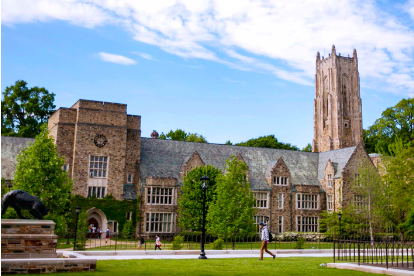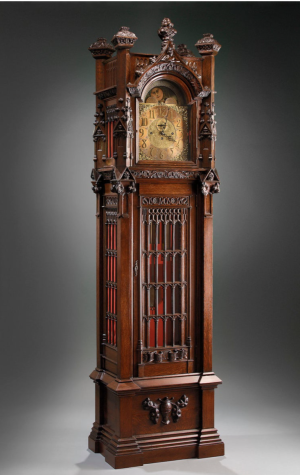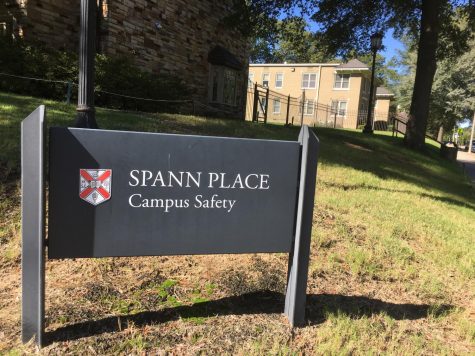Palmer’s legacy should be discussed in the classroom, a point of community discourse

Photo courtesy of Rhodes College
The embattled Palmer Hall
October 5, 2018
The tone of opposition against the recently revived initiative to rename Palmer Hall has fallen in line with that of the larger conversation regarding the celebration of problematic historical figures across the country. Opponents warn against judging Palmer with our current convictions and standards rather than viewing him and his legacy as a man of his time. More compellingly, concerns arise that the college is attempting to erase the darker portions of its history.
This latter point, assuming those who advocate it do so solely with concern for historical perspective, is not unfounded. I would argue that the discussion and debate surround Palmer Hall has been a positive for our student body. It has forced a consideration of the college’s less favorable history and brought it to the forefront of our collective psyche. For a school situated in the heart of the South, founded in 1848, there is shockingly little dialogue about how the school fits into the difficult history of the region and the nation. Having a building prominent to our physical campus that bears the namesake of Palmer, a man whose legacy is stained by shockingly reprehensible viewpoints, brings attention to Rhodes’ place in the time period when those views arose and were accepted. The renewed initiatives to rename Palmer Hall have made the Rhodes community, both in the student body and administration, mindful of how Palmer, his legacy, and the history of our college should be recognized and embraced in the context of our values and goals today.
To that end, I commend the college for its handling of the controversy over the past couple years. It would have been far easier to hastily rename the building to appease its critics, and easier still to ignore the controversy altogether. Those paths would be unbecoming of an institution of higher learning. The principles of discernment for contested names, which Rhodes adopted last spring, not only establish a standard by which to consider historical controversies, but also enforces a culture conducive to critical reflection; one by which initiatives to make our campus reflect our standards today must be balanced with our shared interest in being cognizant and mindful of our past.
These two ambitions, each valid in its own right, are not necessarily mutually exclusive. It is naïve the suggest that we can only reflect on Benjamin Palmer by maintaining monuments celebratory of his legacy. Professor Haynes’ lecture on Palmer, given as part of this year’s Search curriculum, is productive to that end and should set a new standard going forward. To maintain this trajectory of mindfulness into the future, beyond the time when this current discourse and controversy passes, I propose that a study of Palmer’s writings and legacy be instituted as a part of the Search and Life curriculum. The classroom environment provides a framework for careful and critical reflection on an important figure in the college’s history. More importantly, integrating his teachings with the courses taken by every student at Rhodes ensures that the active consideration of our history, which the nature of Palmer Hall has provoked, does not fade, regardless of the decision that the renaming committee eventually reaches.
We find ourselves at a crucial moment for our school, one that provides the opportunity to set the tone of historical mindfulness for years to come. Let us be an example to other institutions undergoing similar considerations and show that there is no need to compromise between making an accessible campus and one that is mindful of its origins; that the changing student body can be cognizant of its problematic history without having the figures of those times integrated mundanely into their daily routines.














